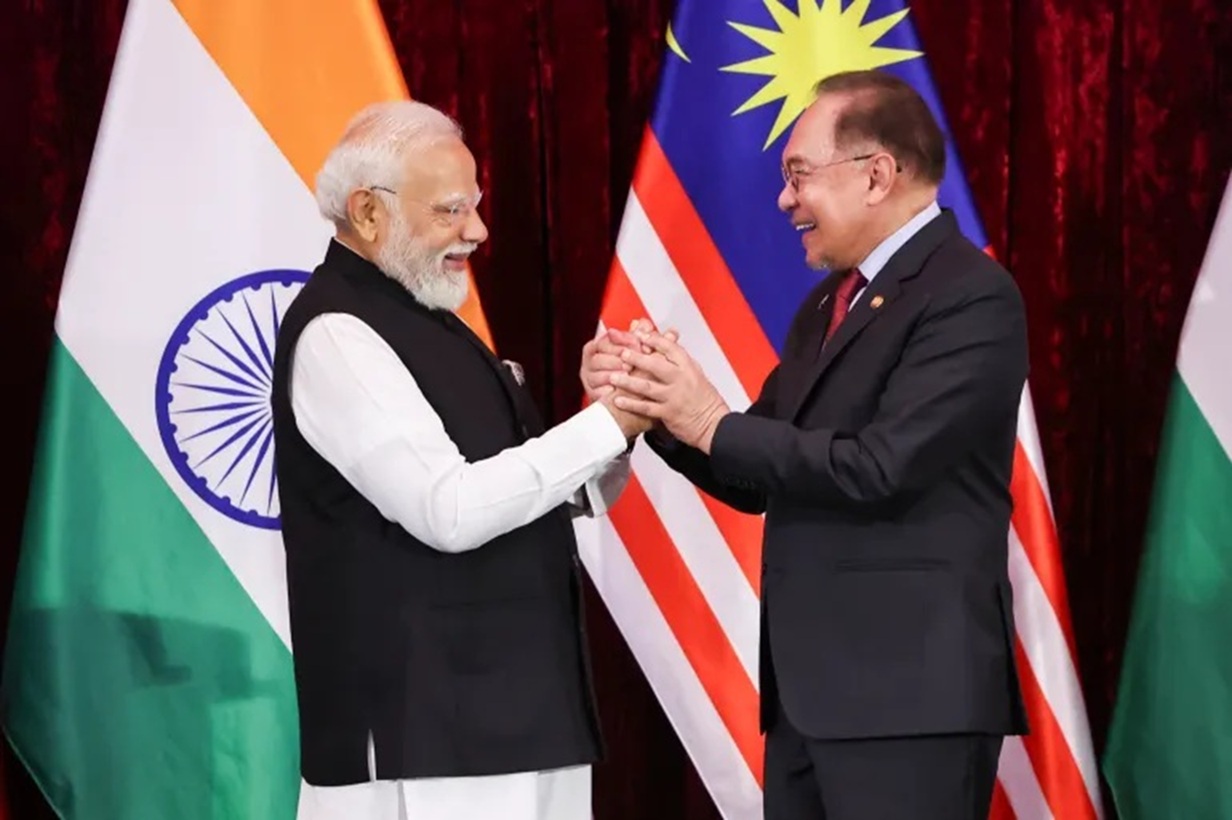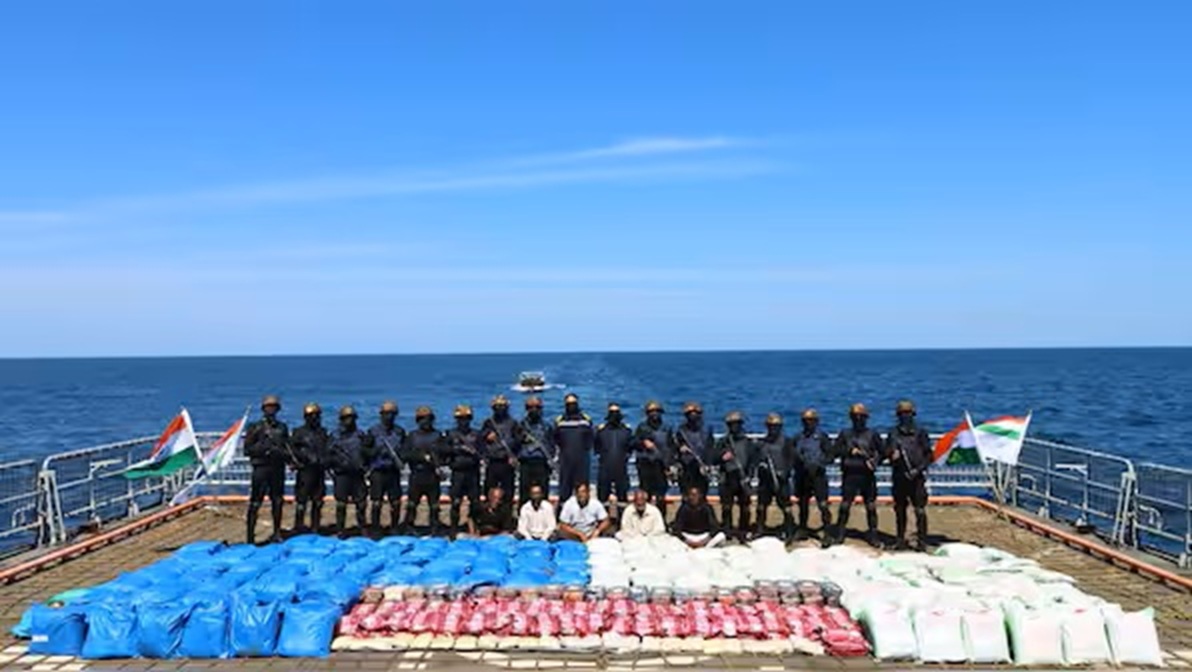Getting back the lost territories of India is a big challenge and we need to adopt a whole-of-nation approach to accomplish this mission
Reacting on the Supreme Court verdict on the abrogation of Article 370, Congress leader and LoP, Lok Sabha, Adhir Ranjan Chowdhury has asked the government when it would reclaim Pakistan-occupied Kashmir. Going further, he asked, “Amit Shah was saying with great conviction that we will reclaim Pakistan-occupied Kashmir, so they should tell us when will they reclaim PoK?”
May this author ask Mr. Chowdhury, “Is there a conducive political environment now in India for disclosure of the government plan to reclaim PoK?”
let me reiterate with full conviction that there is ‘NO SUCH CONDUCIVE POLITICAL ENVIRONMENT’ in the country at present and let us explore why there is no such conducive political environment in India now.
To start with, let us go through what late PM Indira Gandhi told in Parliament to opposition leaders, who were worried about military build-up on the eastern and western international borders along with large-scale refugee influx into eastern India prior to Indo-Pak war in 1971. Apart from the above, there was the US, the UK and China nexus with Pakistan.
Indira Gandhi told in the Lok Sabha, “In a serious moment like this, the less we as a government say, I think the better it is”, and in the Rajya Sabha, she told, “A wrong step, a wrong word, can have an effect entirely different from the one which all intend.”
After hearing Indira Gandhi’s replies, opposition did not raise their doubt on the government efforts, and supported it as per the unwritten democratic norm which says ‘the elected government is legitimate authority and mandated to take whatever decision it deems necessary in so far as secrecy in regard to national security is concerned even if eventually the government decision may go wrong like per example in 1949 advancing Indian army was allegedly stopped to reclaim PoK, China occupation of Aksai Chin in 1950s and finally allegedly allowed to settled down in 1962 war, handing over in a platter Katchatheevu isle to Sri Lanka in 1974, etc. And in post-1971 Indo-Pak war, India gave up a golden opportunity of reclaiming PoK when 90,000+ PoWs were in the custody of Indian Army.
In 1971, Atal Bihari Vajpayee, as the president of the Jan Sangh, the leading opposition party that later evolved into the Bharatiya Janata Party (BJP), said, “The prime minister must now lead the country to total victory over enemy. If the government wanted to secure any more powers to handle the situation, this party would not hesitate to accord its fullest cooperation.” Opposition leaders, including Vajpayee in the Lok Sabha and S.N. Mishra in the Rajya Sabha, condemned then US president Richard Nixon’s ‘anti-India statements’ in Parliament. Other Jan Sangh leaders including L.K. Advani, Balraj Madhok and Kidar Nath Sahani led demonstrations outside the US Embassy protesting western powers collaboration with Pakistan.
let us explore the lack of conducive political environment that this author expressed in this column. Mr. Chowdhury demanded PoK to be reclaimed by India, and sarcastically provoked HM Amit Shah to give a timeline before the election. It should be as per his party led 1994 Parliament resolution. But think for a while: How did this national aspiration be materialized in the presence of Art 370 and 35A the abrogation of which Congress party opposed tooth and nail? Even after the Supreme Court verdict in favour of the abrogation, Congress party spokesman and former Home Minister P. Chidambaram stated, “Prima facie, we respectfully disagree with the judgement on the manner in which Art370 was abrogated.” Also, Mr. Chowdhury is requested to read Pakistan statement over the SC verdict. There is organic similarity between Congress and Pakistan statements.
Is abrogation of Art 370 and 35A by the BJP-led government prelude to the other steps as per 1994 Congress government led Parliament resolution to reclaim PoK? Maybe the government has been following the dictum of 1971 Indira Gandhi’s secrecy over the PoK issue? And maybe the present government does not trust opposition parties in view of certain facts as discussed below. Congress party leaders led Constituency Assembly had made Art 370 a temporary provision, and later in 1954 the same party government added Art 35A in the Constitution through a Presidential Order in the absence of Constituent Assembly and without Parliamentary approval further complicating the issue. India now has reached its ‘amritkaal‘. How long do two temporary provisions remain temporary? Mr. Chowdhury, 75 years in a nation’s life is too long a period.
In 1971, to strengthen the then Congress government effort against enemy and show the world that India is united against external aggression, then opposition party (Jan Sangh) leaders led a demonstration in front of the US embassy. But, in 2017, during the 72 days long Doklam standoff between India Army and People’s Liberation Army of China, Congress party top leaders preferred to have a secret parley with enemy country embassy.
Mr Chowdhury, there is a very strong presence of trust deficit between the ruling party and opposition at present. And instead of working to end the trust deficit, opposition politicians are engaged in fueling the trust deficit by asking for enemy help to remove elected government (Mani S. Aiyer and Salman Khurshid appeal to Pak leadership in 2015), questioning authenticity of Indian army’s surgical strike in PoK in 2016 in response to Uri terror attack, Balakot airstrike in 2019 deep inside enemy territory in response to Pulwama attack and calling defense commander sadak ka goonda.
Here, I would like to quote Army Chief General Manoj Pande’s statement to a group of selected journalists on May 9, 2022, “The basic issue remains the resolution of the border. What we need as a country is a ‘whole-of-nation approach’ and in the military domain, this is to prevent and counter any attempt to alter the status quo at the LAC.” Why did he make such a statement? Let us introspect and go for course correction.





